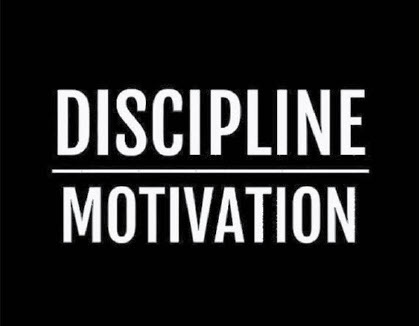Motivation is often heralded as the driving force behind success, inspiring leaders and teams to strive for greatness. While motivation can spark enthusiasm and initiate action, its effects are fleeting and unreliable. It ebbs and flows, subject to emotions, circumstances, and external influences. Leaders who rely solely on motivation, whether for themselves or their teams, risk building a foundation that crumbles under pressure. Instead, it is discipline—consistent, intentional effort over time—that sustains long-term growth and achievement.
Sacred ancient texts often emphasize discipline as a cornerstone of wisdom, character, and spiritual growth. They recognize that fleeting emotions, like motivation, cannot sustain the depth of commitment required for enduring success and faithfulness. In the Christian tradition, the Apostle Paul highlights the importance of discipline in achieving goals and spiritual maturity. In 1 Corinthians 9:25-27, Paul writes, “Everyone who competes in the games goes into strict training. They do it to get a crown that will not last, but we do it to get a crown that will last forever… I strike a blow to my body and make it my slave so that after I have preached to others, I myself will not be disqualified for the prize.” This passage reflects the principle that discipline, not mere motivation, is essential to finishing well.
Discipline creates the structure and habits necessary for enduring success. Unlike motivation, discipline is not dependent on feelings but on commitment. It thrives on small, deliberate actions repeated daily, forming habits that eventually become second nature. For leaders, this means fostering routines that prioritize growth, productivity, and accountability. When leaders model discipline, they establish a culture that values persistence over fleeting bursts of inspiration, encouraging teams to adopt the same mindset.
Relying on motivation to engage others within an organization can lead to inconsistent results and frustration. Teams motivated by external incentives may perform well temporarily but falter when challenges arise or rewards dwindle. Discipline, on the other hand, equips individuals with the resilience to persevere through setbacks and the consistency to deliver results regardless of external conditions. Leaders must, therefore, shift from inspiring momentary enthusiasm to cultivating disciplined practices that enable their teams to function effectively over the long haul.
Ultimately, discipline outlasts motivation because it builds character and fortitude. It enables leaders to make tough decisions, endure challenges, and lead with integrity, even when the path forward is uncertain. Leaders who emphasize discipline over motivation create a legacy of sustained excellence, equipping their teams with the habits needed to thrive in any circumstance. In the words of Aristotle, “We are what we repeatedly do. Excellence, then, is not an act but a habit.” Let discipline, not motivation, be the cornerstone of your leadership journey.
By: Eric Betts, Assistant Professor | Course Developer, Hampton University School of Religion








